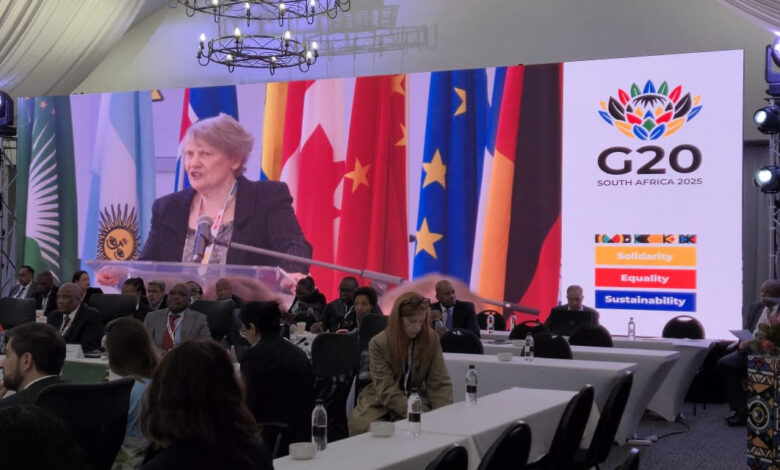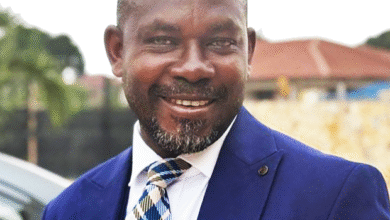Experts Warn Bilateral Deals Could Undermine Global Pandemic Preparedness

Global health experts are warning that a wave of bilateral agreements and limited stakeholder access to negotiations could undermine the multilateral structures crucial for pandemic preparedness, even as countries negotiate the WHO Pandemic Agreement.
As South Africa prepares to host the G20 Leaders’ Summit, Health Ministers and senior officials met last week in Polokwane, Limpopo. Rt Hon Helen Clark, Co-Chair of The Independent Panel and Chair of the Partnership for Maternal, Newborn and Child Health, used the platform to stress the need for solidarity, equality, and sustainability in global health.
Clark told ministers that the emergence of new pandemic threats is inevitable, but a coordinated multilateral approach can prevent another catastrophe like COVID-19. “We can meet threats head on when we act together and prevent another catastrophe like COVID-19. Whether we do is a political choice. Let’s make the right one,” she said.
PABS Annex Negotiations Advance in Geneva
While the G20 Health Ministerial was underway, WHO Member States concluded the third formal session of the Intergovernmental Working Group (IGWG) on the WHO Pandemic Agreement in Geneva. This session marked the first text-based negotiations on the Pathogen Access and Benefit Sharing (PABS) annex, which outlines how pathogen samples, data, and benefits will be shared in future health emergencies.

Dr Michel Kazatchkine, representing The Independent Panel, emphasized the critical need for a robust, legally binding, and operational PABS annex. “The PABS annex must be comprehensive, legally binding, and operational. The world cannot afford to scramble to figure out the ‘how’ in the midst of a crisis,” he said.
Negotiations focused on access to pathogen materials, benefit sharing, governance of the system, and the obligations of different users. Member States debated which provisions should be included in the annex immediately and which could be addressed later by a future Conference of the Parties. The discussions revealed differing perspectives, underscoring that compromise and political commitment will be key to achieving a meaningful agreement.
Bilateral Agreements Raise Alarms
Alongside these negotiations, concerns are mounting over the potential impact of bilateral deals. A template Memorandum of Understanding, reportedly circulated by the United States for partnerships with roughly 70 countries, seeks agreements on specimen and data sharing in exchange for a five-year partnership framework. This framework involves phased reductions in funding for outbreak infrastructure, staffing, HIV, TB, malaria, polio immunization, and maternal health programs.
The Independent Panel warns that these bilateral agreements could undermine multilateral efforts, bypassing the WHO and weakening the equity and solidarity that multilateralism aims to build. “When pathogens know no borders, multilateralism is the only answer. Bilateral agreements threaten the foundations of solidarity and equity we are trying to build,” Kazatchkine said.
These developments come less than two months after the release of the America First Global Health Strategy, highlighting tensions between national strategies and multilateral obligations. Details about the exact agreements on specimen and data sharing remain unclear, raising further concern about potential fragmentation of pandemic preparedness efforts.
Stakeholders Demand Greater Access and Transparency
Limited access for relevant stakeholders to observe the negotiations has also emerged as a major concern. A planned pilot program to allow observers into closed sessions of the IGWG did not materialize, as some Member States remain hesitant about stakeholder presence in such forums.
Organizations including the Pandemic Action Network, FOUR PAWS, the Panel for a Global Public Health Convention, and Spark Street Advisors are calling for increased transparency. They argue that broader access would not only allow technical expertise to inform the negotiations but also reduce misinformation and disinformation that can undermine public trust in global health systems.
Dr Kazatchkine echoed these concerns, noting that inclusive participation from stakeholders is vital for a successful outcome. “Your success here in this room between now and next May will be a success for every nation and every citizen. We will support you, and we count on you to deliver,” he said.
Looking Ahead
The fourth session of the IGWG is scheduled for December 1-5. Observers hope that member states will prioritize multilateral solutions that strengthen pandemic preparedness, avoid fragmentation from bilateral deals, and ensure transparency and equity for all stakeholders. The stakes are high: without coordinated action, the world risks repeating the mistakes of the COVID-19 pandemic, leaving the most vulnerable populations exposed to preventable crises.




